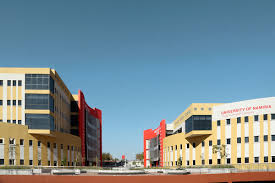The donation of bodies to the University of Namibia School of Medicine have significantly improved, with pledges rising notably between February and May 2025.
Since its establishment in 2009 up to the end of 2024, the School of Medicine received just 11 formal pledges from Namibians willing to donate their bodies posthumously for medical education.
“This year, however, the numbers notably increased, reflecting a transformative shift in public perception and engagement,” said Unam spokesperson Simon Namesho adding that extensive media coverage and public discussions early in 2025, had spurred people’s interest.
In a span of only four months, between February and May, an additional four Namibians had pledged their bodies, bringing the total to 15. In addition, more than 25 people have contacted Unam’s Division of Anatomy requesting donor forms or seeking more information on the donations.
Dr Anneli Poolman, a senior lecturer in anatomy, emphasised the importance of this rising trend.
“Each pledge significantly enriches the practical education of our future medical professionals. The increase in public interest is truly encouraging, supporting a greater understanding of how vital these donations are for medical training,” Poolman said, adding that from comparing numbers, the rise in interest is strikingly evident.
Donation from February to May 2025 already make up 27% of the total pledges received since 2010.
This, Poolman said, clearly proves a significant shift in public engagement and willingness to support medical education.
The university also noted that the practical implications of receiving Namibian donors, as opposed to relying on costly imports from countries such as South Africa, are profound. Namibian body donations eliminate the complex, expensive logistical challenges associated with international transportation and embalming, said Poolman.
Furthermore, local donations cultivate a deeper sense of national contribution to healthcare education, fostering stronger local support.
Highlighting the significance, Professor Judith Hall, the Executive Dean of the Faculty of Health Sciences and Veterinary Medicine, remarked: “Local body donations symbolise community support for Namibia’s healthcare education system. It’s a powerful statement of national pride and unity.”
Similarly, Dr Felicia Christians, Associate Dean of the School of Medicine, noted: “The recent rise in body donation pledges reflects greater openness and acceptance among Namibians. It’s a commendable act, showing a progressive mindset towards supporting medical research and education in Namibia.”
The university continues to encourage potential donors to discuss their wishes openly with their families and communities. Interested individuals can obtain the necessary forms and information directly from the University at apoolman@unam.na, contributing positively to Namibia’s medical education and research.



